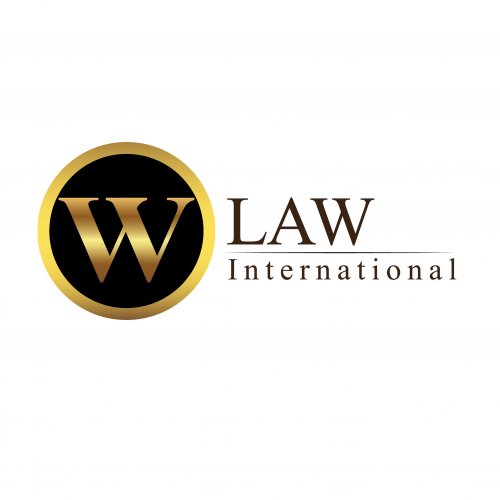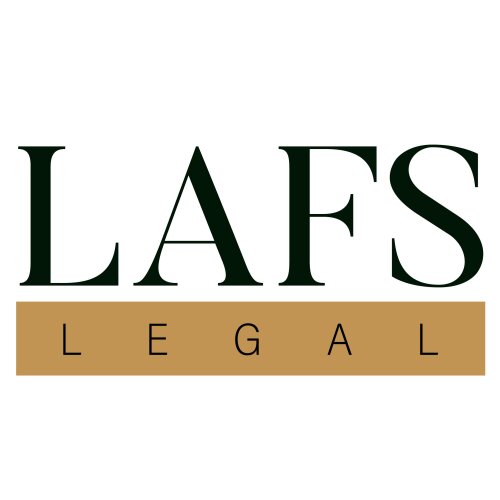Best Inheritance Law Lawyers in Thailand
Share your needs with us, get contacted by law firms.
Free. Takes 2 min.
Or refine your search by selecting a city:
List of the best lawyers in Thailand
Legal guides written by Smart Legal Solutions:
- Main Legal Measures to Protect Foreign Investment in Thailand
- The importance of the geographical indications for the Thai economy
About Inheritance Law in Thailand
Inheritance law in Thailand governs how a deceased person’s assets are distributed. It covers both testate arrangements (wills) and intestate situations when there is no valid will. The Civil and Commercial Code provides the framework for who inherits, in what shares, and how estates are administered. The law also sets rules on executors or administrators who manage the estate during probate. For real estate, ownership and transfer rules intersect with land laws and foreign ownership restrictions.
In practice, Thai inheritance can involve several moving parts: proving death and testamentary intent, identifying heirs, valuing and transferring assets, and settling debts or liabilities. Many families need guidance on whether a will is advisable, how to avoid disputes, and how to handle estate planning for future generations. The process can be complex when assets span multiple jurisdictions or include foreign family members, companies, or real property.
Why You May Need a Lawyer
- Drafting or reviewing a will to reflect your intentions in Thailand, especially when there are foreign family members or multiple assets across provinces. A lawyer can ensure the will complies with Thai formalities and minimizes disputes.
- Handling intestate succession when there is no will, such as where a surviving spouse, children, and parents all have potential claim to assets. A lawyer can determine statutory shares and coordinate probate filings.
- Disputes over who is an eligible heir, including challenges to a will or claims by stepchildren or adopted children. Legal counsel can advise on evidence, inheritance rights, and remedies.
- Estate administration after death abroad or with cross-border assets, where Thai law interacts with other jurisdictions. A lawyer can coordinate with foreign counsel and handle asset transfers in Thailand.
- Real estate and land inheritance where land ownership by non-Thai nationals or multi-heir transfers require careful title review and compliance with the Land Code.
- Tax and duties considerations related to inheritance and transfer of assets, including how gifts, transfers, or estate settlements may be taxed and what filings are required.
Local Laws Overview
Civil and Commercial Code (Inheritance provisions)
The Civil and Commercial Code is the principal statute governing wills, succession and the distribution of a deceased person’s assets in Thailand. It explains who can inherit, the rights of statutory heirs, and the procedures for probate and administration. The code also addresses the validity and formal requirements of wills and how debts must be settled before distribution.
Because inheritance rights depend on relationships and the presence of other heirs, many cases require careful calculation of shares and a clear sequencing of payments. Whether you are preparing a will or challenging an apparent intestacy, counsel familiar with the Civil and Commercial Code can help you interpret articles and ensure you follow proper procedures.
Land Code (Real estate and inheritance)
The Land Code governs the transfer and registration of real property, including how inherited land is titled. Foreign ownership restrictions on land, and the procedures for transferring ownership to heirs, often require joint coordination between probate steps and land transfer processes. When real estate is part of an estate, title clearance and compliance with land registration rules are essential for a smooth transfer.
Tax Considerations Related to Inheritance
Tax implications can arise in estate settlements, especially with transfers, gifts, and the potential valuation of assets. While Thailand does not have a general inheritance tax in the same way as some other jurisdictions, certain asset transfers and gifts may be subject to taxes or duties. A lawyer can identify applicable obligations and help plan to minimize tax exposure while complying with Thai law.
Sources referencing official Thai guidance on inheritance and probate include Ministry of Justice materials and official court guidance. For primary texts and updates, consult the Royal Gazette and official government sites.
For official sources and updates, you can consult government resources such as the Ministry of Justice and the Courts system, and you can review published texts in the Royal Gazette for amendments to inheritance rules.
Key references - Ministry of Justice: overview of inheritance matters and guidance for citizens and residents (official information in Thai and English) - Ministry of Justice, Bangkok.
Official courts guidance on probate, wills, and estate administration - Courts of Thailand.
Official publication of laws and amendments - Royal Gazette.
Frequently Asked Questions
The questions below cover practical, procedural, and definitional aspects of inheritance law in Thailand. Each question is designed to be concise and informative.
What is inheritance law in Thailand?
Inheritance law determines how a deceased person’s assets are distributed. It includes intestate rules when there is no will and provisions for distributing estates under a valid will. It also covers probate procedures and the roles of executors or administrators.
How do I start an intestate succession in Thailand?
Begin by identifying all potential heirs and collecting death and asset information. You will likely file a petition with the district or provincial court to appoint an administrator and to commence inventory and valuation of the estate.
When is probate required in Thailand?
Probate or estate administration is typically required when there are assets to transfer, such as land, bank accounts, or vehicles. The court may appoint an administrator to manage debts and distribute assets to rightful heirs.
Where do I file an inheritance case in Thailand?
You usually file with the district or provincial court that has jurisdiction over the deceased’s residence or where the assets are located. A lawyer can identify the correct venue and filing requirements.
Why should I hire a Thai inheritance lawyer?
A lawyer helps ensure compliance with the Civil and Commercial Code, handles complex asset inventories, guides you through probate, and reduces the risk of disputes or delays.
How much does it cost to settle an estate in Thailand?
Costs vary by estate size, complexity, and the attorney's fee structure. Typical expenses include court fees, valuation costs, publication fees, and legal fees charged by the counsel, either hourly or a flat retainer.
Do I need a will to avoid intestacy in Thailand?
Having a will helps express your wishes and can simplify asset distribution, but you should consult a lawyer to ensure the will is valid under Thai formalities and that it coordinates with any applicable laws on shares for statutory heirs.
Should foreigners inherit Thai assets?
Foreigners can inherit in Thailand, but there are restrictions on real estate ownership and certain registration requirements. A lawyer can explain what is feasible for your specific asset portfolio.
Do wills require witnesses in Thailand?
Wills in Thailand must comply with statutory formalities to be valid. A lawyer can ensure the will is properly witnessed and executed to withstand challenges.
How long does probate take in Thailand?
Probate duration depends on case complexity and court backlogs. A straightforward estate may resolve within 6 to 12 months, while intricate cases can take longer, sometimes over a year.
What documents are needed to contest a will?
You generally need proof of your relationship to the deceased, copies of the will, death certificates, asset lists, and any evidence of undue influence or fraud. A lawyer will tailor the list to your case.
What is the difference between probate and administration?
Probate typically confirms the validity of a will. Administration handles intestate cases and manages estate assets when there is no valid will, often under court supervision.
Additional Resources
- Ministry of Justice (MOJ) - Inheritance information and guidance - Official government site with resources on wills, succession, and probate processes. https://www.moj.go.th
- The Courts of Thailand (Office of the Judiciary) - Probate and estate administration guidance, forms, and court procedures
- Royal Gazette - Official publication of laws and amendments, including inheritance related changes - https://www.ratchakitcha.soc.go.th
Next Steps
- Clarify your objectives and asset inventory - Make a list of assets, debts, and relations among potential heirs. Time estimate: 1-2 weeks.
- Identify a qualified inheritance lawyer in Thailand - Look for a solicitor or attorney with Thai inheritance experience and positive client references. Time estimate: 1-2 weeks for research.
- Schedule an initial consultation - Prepare a summary of your situation and questions about fees, timelines, and expected outcomes. Time estimate: 1 week.
- Gather essential documents - Death certificate, will (if any), asset deeds, title documents, tax IDs, and family relationships. Time estimate: 1-3 weeks depending on availability.
- Develop a plan with your lawyer - Agree on steps for probate, debt settlement, and asset transfers, plus cost estimates and a timeline. Time estimate: 1-2 weeks after the first meeting.
- Proceed with probate or intestate administration - Your lawyer files the necessary petitions and coordinates asset valuation and transfers. Time estimate: 6-12 months for simple cases; longer for complex estates.
- Review cross-border or real estate issues - If assets are abroad or include Thai land, coordinate with foreign counsel and land registration authorities. Time estimate: varies by location and asset type.
Lawzana helps you find the best lawyers and law firms in Thailand through a curated and pre-screened list of qualified legal professionals. Our platform offers rankings and detailed profiles of attorneys and law firms, allowing you to compare based on practice areas, including Inheritance Law, experience, and client feedback.
Each profile includes a description of the firm's areas of practice, client reviews, team members and partners, year of establishment, spoken languages, office locations, contact information, social media presence, and any published articles or resources. Most firms on our platform speak English and are experienced in both local and international legal matters.
Get a quote from top-rated law firms in Thailand — quickly, securely, and without unnecessary hassle.
Disclaimer:
The information provided on this page is for general informational purposes only and does not constitute legal advice. While we strive to ensure the accuracy and relevance of the content, legal information may change over time, and interpretations of the law can vary. You should always consult with a qualified legal professional for advice specific to your situation.
We disclaim all liability for actions taken or not taken based on the content of this page. If you believe any information is incorrect or outdated, please contact us, and we will review and update it where appropriate.
Browse inheritance law law firms by city in Thailand
Refine your search by selecting a city.

















